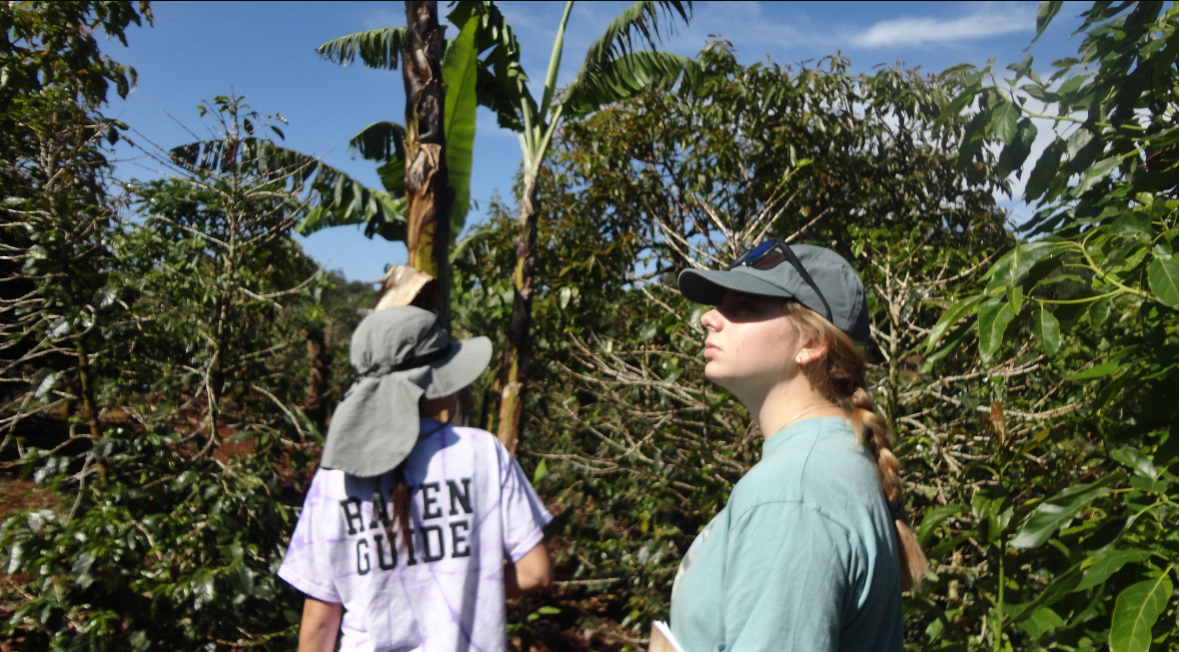Editor’s note: Originally published in Via Verde Magazine.
I’ve ordered a medium Philtered Soul with medium oat milk, medium sugar, and light ice from a Philz Coffee barista nearly every day. My friends, family, and even my first-period teacher, who sees me walking in with my Philz cup in hand each morning, know one common fact about me: I love coffee.
Despite being a coffee lover for over three years, I had never thought about where the coffee might have come from.
Over spring break, I went on a service trip through Dream Volunteers, a 501(c)(3) public charity. While most of their service trips focus on bettering education by building and decorating schools, their Costa Rica trips highlight sustainability through organic coffee farming because of Costa Rica’s unique cloud forests and coffee industry.
All 13 high school volunteers — including me— from Silicon Valley arrived in Costa Rica eager to help organic coffee farmers. However, when we got to the coffee plantations, it was no walk in the park, literally.
The plantation fields were densely packed with coffee plants and moist soil from the daily tropical rain. Walking through them to fertilize the plants and throw out dead branches gave me scratches and coated my boots in dirt.
“Could you grab me another bucket of fertilizer?” I yelled to my friend over the half-acre of coffee plants.
With each bucket dumped into the fields and each scratch I got from the post-harvest barren branches of the plants, my appreciation for the farmers who provide my Philz Coffee each morning grew deeper. Understanding the difficult work that goes in and the low pay that comes out.
After a morning of working in the coffee fields, all of the volunteers would return to the center of San Pedro, a soccer field and multipurpose room, to engage in Costa Rican activities organized by Dream Volunteers. We would play soccer, take salsa lessons, or cook up some tortillas with local teens.
Despite the handmade soccer goals being on the verge of breaking, rain dumping on us, and me not having played soccer since 2nd grade, I had a blast. Being together, boys and girls of all different ages, made me forget about my stresses back home.
The highlight of my work hours was the fruit the moms from the 300-person town of San Pedro would cut up for the volunteers: watermelon, melon, and, on special occasions, passionfruit.
Our evenings would close with a dinner and a reflection, where we would look back on everything we learned that day. Most vividly, I remember writing a letter to Roberto, a farmer I had met earlier.
He told me about his experiences in the US and needing to come home for his family. He emphasized Costa Rica’s peaceful nature and made sure to send me home with a sweet passionfruit from his farm.
I could not get passionfruit like this at home, nor could I get coffee as varied in hints of flavor. I was not going to start playing soccer in the rain, or growing my own coffee farm, but I returned home appreciating little aspects of my life, admiring small parts of nature, and understanding specific details of the processes it takes for products to get from farm to table.
After a turbulent six-hour flight and a week working on organic coffee farms, my routine Philz Coffee order changed for the first time in three years. Now, I hand the barista my own cup instead of their paper ones, knowing what will come back in it was made with care and diligent work or even opt to make my own coffee supporting organic farmers at home.
